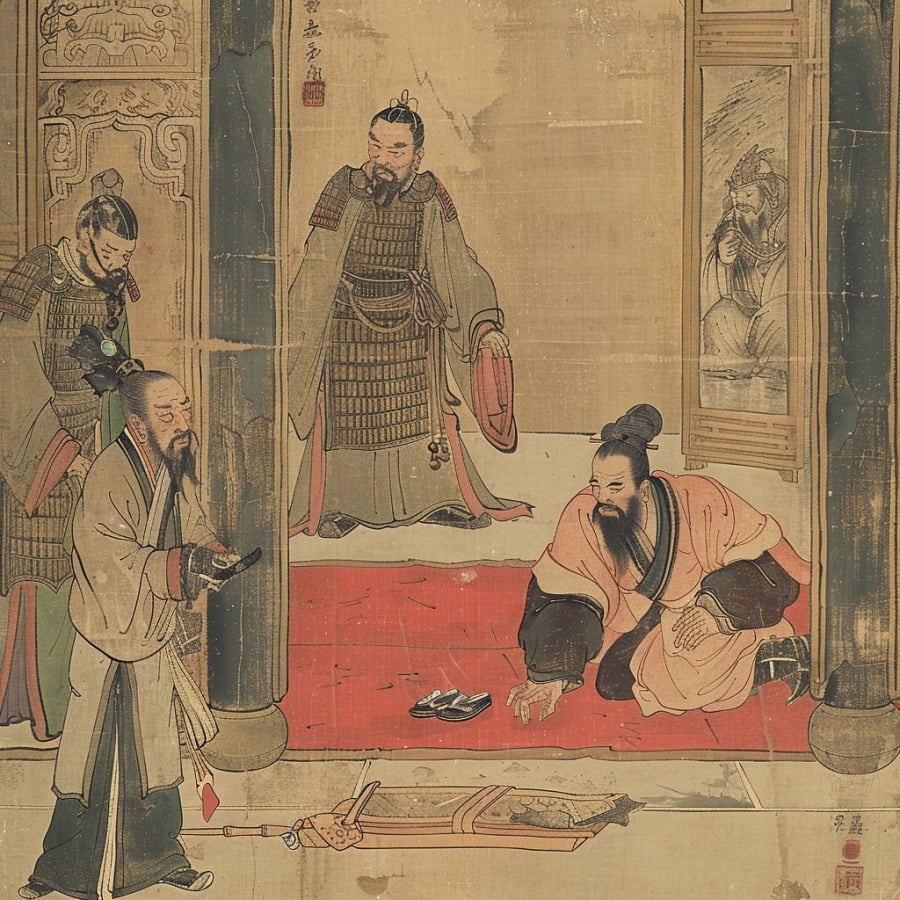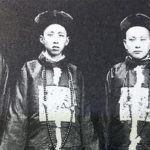In ancient feudal times, great importance was placed on rituals and the religious system. When the emperor discussed national issues with the officials and generals in the court, there was a rule that the officials had to leave their shoes outside the door before entering the inner court. Violating this rule could lead to the death penalty. It is known that this custom originated in ancient China.
Not only for cleanliness reasons, but also because it was believed that wearing shoes into someone else’s house could dirty their home. Over time, the act of taking off shoes when entering a house became a ritual that expressed respect for the host.

According to Deng Tan, “Le Ky: Khuc Le” states that “Thi toa u truong gia, lu bat thuong u duong” means that when sitting with elders or seniors, one must take off their shoes and leave them in the hallway, not bringing them inside. This reflects the importance of etiquette, especially the act of taking off shoes when visiting someone’s house or when interacting with older people. These rules are all derived from the daily habits of ancient people.
Chinatimes newspaper reports that in ancient feudal Chinese society, both the emperor and the poor had to abide by the rule of taking off shoes before entering a house. The reason is that the houses at that time were not fully equipped with furniture like tables and chairs as they are today, but only had bamboo mats (tich) and quilts (dien) to sit on the floor, so the seating area was called “dien”.
In “Le Ky,” the phrase “Ap tan tuu dien” (invite guests to sit on the mat) is also mentioned. In wealthy families, they often spread mats throughout the main hall, and when guests arrive, they need to take off their shoes before entering this space to sit on the bamboo mats and enjoy the feast with the host.
If shoes are brought into the house, it will dirty the mats, not only compromising cleanliness but also showing a lack of respect.

Over time, taking off shoes before entering a house has not only maintained cleanliness but also become a ritual, a way to show respect for the host. Although these rules are not too strict for ordinary people, they are very important for the emperor.
In ancient times, when officials entered the royal court to discuss national affairs, they had to take off their shoes. Especially during the Qin Dynasty, even taking off socks became mandatory to avoid the emperor’s dissatisfaction.

Quoted from “Ta Truyen,” the story of Ve Xuat Cong, who escaped to the Song country and built a magnificent palace. Here, he often organized wine banquets and socialized with officials. One day, a Chu noble came to the party but retained his socks. Seeing this, Ve Xuat Cong was furious. The Chu noble hurriedly explained that he wore socks to cover a sore on his foot, fearing that revealing it would make others uncomfortable. However, Ve Xuat Cong did not listen and still showed extreme anger, even threatening to cut off the noble’s foot.
This story vividly illustrates how important the act of taking off shoes was in ancient culture. In ancient China’s traditional customs, there is also the proverb “kiem li thuong dien,” which means being allowed by the emperor to wear a sword and shoes into the palace, which is a great honor that not everyone can have. However, the rule of “escaping from ritual awkwardness” – taking off shoes to show respect, is not always applied in every situation. Specifically, “Le Ky” clearly states that during funerals or ritual ceremonies, everyone must wear shoes. In these occasions, exposing toes would be considered improper and disrespectful to the deceased or the gods.




































